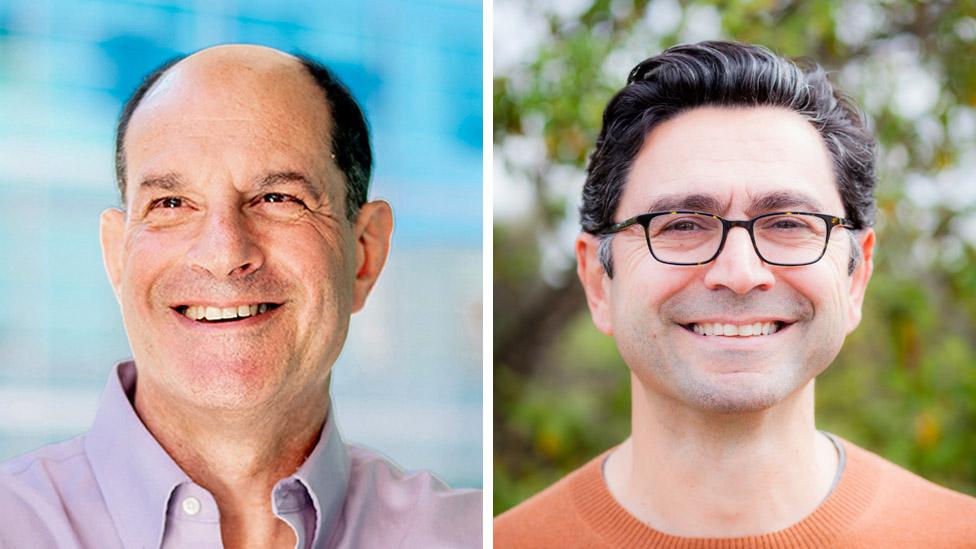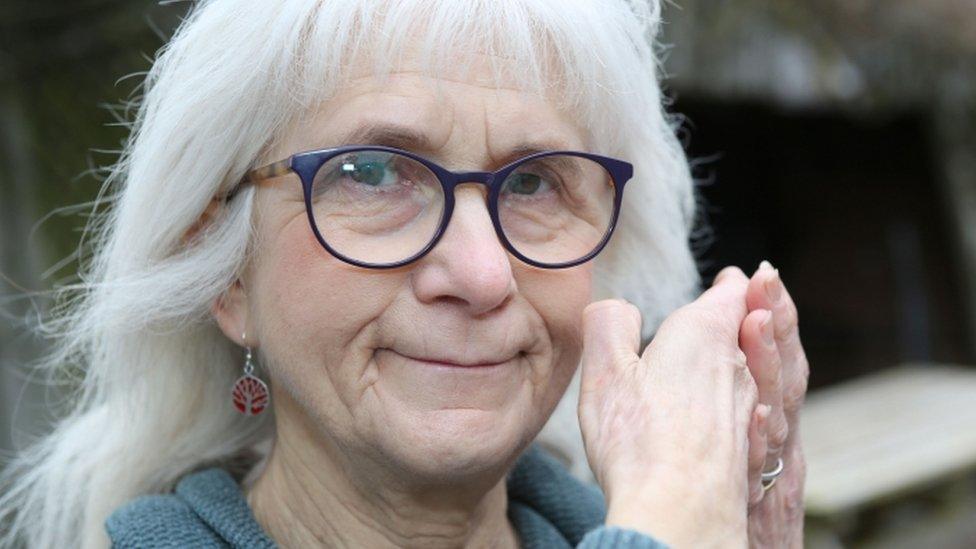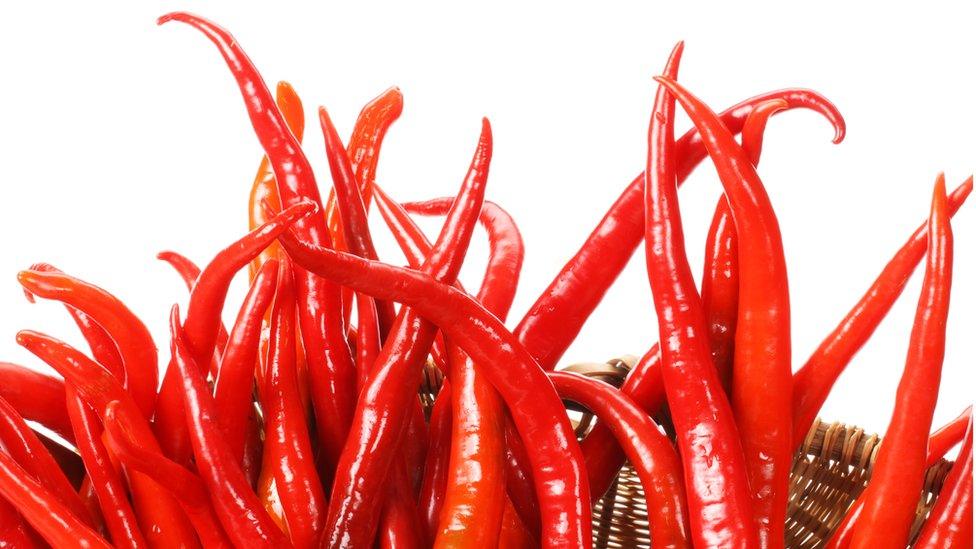Sense of touch and heat research wins Nobel Prize
- Published

Scientists who discovered how our bodies feel the warmth of the sun or the hug of a loved one have won the Nobel Prize.
David Julius and Ardem Patapoutian, from the US, share the 2021 prize in Medicine or Physiology for their work on sensing touch and temperature.
They unpicked how our bodies convert physical sensations into electrical messages in the nervous system.
Their findings could lead to new ways of treating pain.
Heat, cold and touch are crucial for experiencing the world around us and for our own survival.
But how our bodies actually do it had been one of the great mysteries of biology.
Allow X content?
This article contains content provided by X. We ask for your permission before anything is loaded, as they may be using cookies and other technologies. You may want to read X’s cookie policy, external and privacy policy, external before accepting. To view this content choose ‘accept and continue’.
Thomas Perlman, from the Nobel Prize Committee, said: "It was a very important and profound discovery."
Prof David Julius's breakthrough, at the University of California, San Francisco, came from investigating the burning pain we feel from eating a hot chilli pepper.
He experimented with the source of a chilli's heat - the chemical capsaicin.
He discovered the specific type of receptor (a part of our cells that detects the world around them) that responded to capsaicin.
Further tests showed the receptor was responding to heat and kicked in at "painful" temperatures. This is what happens, for example, if you burn your hand on a cup of coffee.
The discovery led to a flurry of other temperature-sensors being discovered. Prof Julius and Prof Ardem Patapoutian found one that could detect cold.
Meanwhile, Prof Patapoutian, working at the Scripps Research institute, was also poking cells in a dish.
Those experiments led to the discovery of a different type of receptor that was activated in response to mechanical force or touch.
When you walk along a beach and feel the sand under your feet - it is these receptors that are sending signals to the brain.
Allow X content?
This article contains content provided by X. We ask for your permission before anything is loaded, as they may be using cookies and other technologies. You may want to read X’s cookie policy, external and privacy policy, external before accepting. To view this content choose ‘accept and continue’.
Prof Patapoutian actually missed multiple attempts by the Nobel Prize committee to let him know he was a winner. His phone was set to do-not-disturb so the flurry of phone calls from Sweden (at 0200 California time) went unanswered.
"They somehow got to my 94 year old father who lives in Los Angeles and he was able to call me and wake me up and tell me the news, which was ended up being a fantastic way to find out," he said.
These touch and temperature sensors have since been shown to have a wide role in the body and in some diseases.
The first heat sensor (called TRPV1) is also involved in chronic pain and how our body regulates its core temperature. The touch receptor (PIEZ02) has multiple roles, from urinating to blood pressure.
The Prize Committee said their work had "allowed us to understand how heat, cold and mechanical force can initiate the nerve impulses that allow us to perceive and adapt to the world around us."
It added: "This knowledge is being used to develop treatments for a wide range of disease conditions, including chronic pain."
The pair will share the 10m Swedish kronor (£845,000) prize.
Follow James on Twitter, external

Previous winners
2020 - Michael Houghton, Harvey Alter and Charles Rice for the discovery of the virus Hepatitis C.
2019 - Sir Peter Ratcliffe, William Kaelin and Gregg Semenza for discovered how cells sense and adapt to oxygen levels
2018 - James P Allison and Tasuku Honjo for discovering how to fight cancer using the body's immune system
2017- Jeffrey Hall, Michael Rosbash and Michael Young for unravelling how bodies keep a circadian rhythm or body clock
2016 - Yoshinori Ohsumi for discovering how cells remain healthy by recycling waste
2015 - William C Campbell, Satoshi Ōmura and Youyou Tu for anti-parasite drug discoveries
Related topics
- Published28 March 2019

- Published5 October 2015
